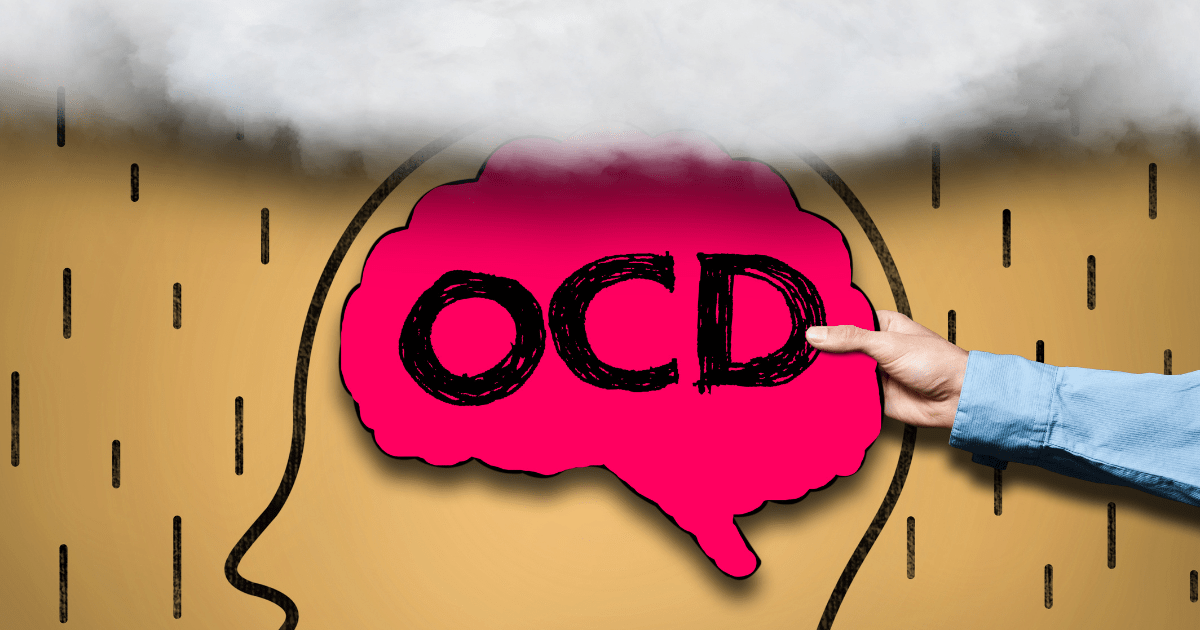
Unlocking Inner Peace: A Guide to Enhancing Mental Health
January 16, 2024
Navigating Life with an Alcoholic Loved One? Discover the Benefits of Al Anon
February 8, 2024Are you tired of feeling trapped in the chaotic whirlwind that is obsessive-compulsive disorder? Do you long for a sense of control and peace in your everyday life? Look no further! In this blog post, we will unravel the secrets behind managing OCD symptoms and introduce you to First City Mental Health Center – your ultimate guide towards regaining control over your mind. Don't let OCD dictate your life any longer; it's time to break free from chaos and embrace serenity. Let's embark on this transformative journey together!
Introduction to Obsessive Compulsive Disorder (OCD):
Obsessive Compulsive Disorder, commonly known as OCD, is a mental health condition that affects millions of people worldwide. It is characterized by persistent and intrusive thoughts, urges or images (obsessions) that lead to repetitive behaviors or mental acts (compulsions). These obsessions and compulsions can significantly impact an individual's daily life and cause distress and impairment in functioning.
OCD is often misunderstood and stigmatized, leading many individuals to suffer in silence without seeking proper help. However, it is essential to understand that OCD is a medical condition that can be effectively managed with the right treatment approach.
Symptoms of OCD may vary from person to person, but they typically fall into two categories: obsessions and compulsions. Obsessions are unwanted thoughts or fears that repeatedly occur in an individual's mind despite efforts to ignore them. These obsessions can range from fear of contamination, excessive doubt or need for symmetry, aggressive thoughts, etc. On the other hand, compulsions are repetitive actions or mental rituals performed by individuals to reduce anxiety caused by the obsessive thoughts. These compulsions may include excessive cleaning or washing hands, checking things repeatedly, counting or repeating specific words silently.
Living with OCD can be extremely challenging as individuals often experience intense anxiety and distress due to their uncontrollable thoughts and behaviors. It can also affect their relationships and daily routines significantly.
However, it is crucial to note that having occasional intrusive thoughts or habits does not necessarily mean someone has OCD. The frequency and severity of these symptoms are what differentiate individuals with OCD from those who do not have the disorder.
The exact cause of OCD is still unknown; however, research suggests that a combination of genetic predisposition and environmental factors may play a role in its development. Some studies have also shown changes in brain structure and function among individuals with OCD.
If you think you may be struggling with symptoms of OCD, it is essential to seek professional help. At First City Mental Health Center, our team of experienced therapists and psychiatrists can provide an accurate diagnosis and develop a personalized treatment plan to manage your symptoms effectively.
Our comprehensive approach includes therapy sessions, medication management, and support groups to help you understand your condition better and learn coping strategies for managing OCD. We strive to create a safe and supportive environment for individuals with OCD to feel comfortable seeking the help they need.
In the following sections of this blog series, we will explore in more detail how First City Mental Health Center can assist in managing specific symptoms of OCD. Remember that with the right support and treatment, individuals with OCD can live fulfilling lives free from the chaos caused by their disorder.
Symptoms and Types of OCD
Obsessive-Compulsive Disorder (OCD) is a type of mental illness that causes individuals to have uncontrollable and recurring thoughts, known as obsessions, and behaviors, known as compulsions. These symptoms can significantly impact a person’s daily life and relationships. It is estimated that 2-3% of people in the United States will experience OCD at some point in their lives.
The symptoms of OCD can vary from person to person, but they typically fall into two categories: obsessions and compulsions. Obsessions are persistent thoughts or urges that are unwanted and cause significant distress. Some common obsessions include fear of contamination, concerns about symmetry or order, aggressive or violent thoughts, and excessive doubts about everyday tasks.
On the other hand, compulsions are repetitive behaviors or mental acts that an individual feels compelled to do in response to their obsessions. These actions are often done to reduce anxiety caused by the obsessive thoughts temporarily. Examples of common compulsions include excessive cleaning or hand-washing, organizing items in a specific way, counting objects repeatedly, or checking things multiple times.
In addition to these general categories of symptoms, there are also different types of OCD that individuals may experience. One type is called Contamination OCD where individuals have an extreme fear of germs or getting sick from contact with certain objects or surfaces. Another type is Hoarding OCD where people struggle with excessive collecting and difficulty discarding possessions.
Other types include Symmetry/Ordering OCD where individuals feel compelled to arrange items symmetrically and precisely in certain patterns; Checking OCD where people have intense fears about safety issues like leaving doors unlocked; Religious/Moral Scrupulosity OCD where individuals have intrusive religious-related thoughts; Sexual Orientation/Obsession OCD where one has frequent doubts about their sexual orientation; Somatic Obsession/Cleaning Compulsion which involves fears related to bodily sensations; Just Right/Perfectionism OCD where individuals feel the need to achieve perfection in tasks or routines.
It is essential to note that not everyone with OCD experiences all of these symptoms, and each person's experience may vary. However, if you are struggling with any of these symptoms and they significantly impact your daily life, it is crucial to seek professional help.
At First City Mental Health Center, our team of mental health professionals specializes in the treatment of OCD. We offer evidence-based therapies such as Cognitive Behavioral Therapy (CBT) and Exposure and Response Prevention (ERP) to help individuals manage their symptoms effectively. Our goal is to provide a safe and supportive environment where individuals can learn coping strategies and techniques to regain control over their lives.
Impact of OCD on Daily Life
Living with Obsessive-Compulsive Disorder (OCD) can significantly impact an individual's daily life. The constant intrusive thoughts and compulsive behaviors can consume a person's time, energy, and mental well-being. In this section, we will discuss the various ways in which OCD can affect different aspects of daily life and how First City Mental Health Center can help manage these symptoms.
- Personal Relationships:
OCD can have a significant impact on personal relationships. The intense fear of contamination or harm to loved ones may lead to difficulties in maintaining close physical contact or emotional intimacy. This can strain relationships with family members, friends, and romantic partners. Moreover, individuals with OCD may struggle to express their feelings or communicate effectively due to the overwhelming obsessions and compulsions they experience. As a result, they may withdraw from social interactions, leading to feelings of isolation and loneliness.
- Work/ School Performance:
Individuals with OCD often struggle with concentration and focus due to the constant intrusive thoughts demanding their attention. This can make it challenging to perform well at work or school and complete tasks within deadlines. Additionally, certain obsessions or compulsions may interfere with work obligations or academic responsibilities, leading to absenteeism or decreased productivity.
- Daily Tasks:
Performing even simple daily tasks like getting dressed or preparing meals may become difficult for someone living with OCD as they may feel compelled to repeat these actions multiple times until the anxiety associated with their obsession subsides temporarily. This not only consumes valuable time but also adds stress and frustration in completing everyday activities.
4 . Emotional Well-being:
The persistent nature of OCD symptoms takes a toll on an individual's emotional well-being. The constant worry about potential dangers or making mistakes leads to heightened levels of anxiety and distress throughout the day. It can also trigger other mental health conditions such as depression, as individuals often feel overwhelmed by their obsessive thoughts and find it challenging to control them.
At First City Mental Health Center, our trained therapists and counselors provide evidence-based treatment for OCD to help individuals manage their symptoms effectively. Our therapy programs focus on cognitive-behavioral techniques that aim to challenge irrational thoughts and behaviors and replace them with healthier coping mechanisms. Additionally, we offer support groups where individuals can connect with others who understand what they are going through and share their struggles in a supportive environment.
OCD can significantly impact an individual's daily life, but with the right treatment and support, it is possible to manage its symptoms and lead a fulfilling life. At First City Mental Health Center, we are committed to helping individuals regain control over their lives and overcome the challenges posed by OCD.
Overview of First City Mental Health Center
First City Mental Health Center is a leading mental health facility that offers comprehensive services for individuals struggling with Obsessive-Compulsive Disorder (OCD). Located in the heart of First City, it has been providing high-quality and evidence-based treatments for over 20 years.
The center is known for its team of highly trained and experienced mental health professionals who are dedicated to helping individuals overcome their OCD symptoms. The staff at First City Mental Health Center includes licensed therapists, psychologists, psychiatrists, and psychiatric nurses who specialize in treating OCD.
One of the key features that set First City Mental Health Center apart from other facilities is its personalized treatment approach. Each individual is unique and so are their struggles with OCD. Therefore, the center offers customized treatment plans tailored to meet the specific needs of each patient. This ensures that all aspects of an individual's OCD symptoms are addressed effectively.
The treatment programs at First City Mental Health Center combine therapy and medication management to provide a holistic approach towards managing OCD symptoms. The center utilizes evidence-based therapies such as Cognitive Behavioral Therapy (CBT), Exposure Response Prevention (ERP), and Acceptance and Commitment Therapy (ACT) to help patients develop coping mechanisms and learn healthy ways to manage their intrusive thoughts and compulsive behaviors.
In addition to therapy sessions, the center also provides education on understanding OCD, its causes, triggers, and how it affects daily life. This knowledge can be empowering for individuals struggling with this disorder as it helps them gain a better understanding of their condition.
At First City Mental Health Center, patients also have access to support groups where they can connect with others who are going through similar experiences. These support groups not only provide a sense of community but also serve as a safe space for sharing experiences and receiving encouragement from fellow members.
Moreover, the center offers aftercare services such as relapse prevention planning to ensure that individuals continue to maintain control over their OCD symptoms even after completing the treatment program.
First City Mental Health Center is a reputable and trusted facility that provides comprehensive and personalized care for individuals struggling with OCD. With its team of dedicated professionals, evidence-based treatments, and support services, the center offers the necessary tools to help individuals overcome their OCD symptoms and achieve a better quality of life.
Treatment Options for OCD at First City Mental Health Center
At First City Mental Health Center, we understand the challenges that come with living with Obsessive-Compulsive Disorder (OCD). That's why our team of experienced mental health professionals is dedicated to providing comprehensive and personalized treatment options for individuals struggling with OCD. In this section, we will discuss the different types of treatment available at our center to help manage OCD symptoms.
- Cognitive Behavioral Therapy (CBT):
CBT is a type of therapy that focuses on changing the negative thought patterns and behaviors associated with OCD. Our therapists use CBT techniques such as exposure and response prevention (ERP) to gradually expose individuals to their fears and teach them how to resist compulsions. Through this process, patients learn effective coping strategies and gain control over their obsessions and compulsions.
- Medication:
Medication can be an important part of managing OCD symptoms, particularly when combined with therapy. Our psychiatrists work closely with patients to prescribe the appropriate medication based on their specific needs. Commonly used medications for treating OCD include selective serotonin reuptake inhibitors (SSRIs), which help regulate serotonin levels in the brain, reducing anxiety and obsessive thoughts.
- Group Therapy:
First City Mental Health Center offers group therapy sessions led by trained therapists who specialize in treating OCD. These sessions provide a supportive environment for individuals to share their experiences, receive feedback from others, and learn from one another's coping strategies. Group therapy also helps reduce feelings of isolation and provides a sense of community among those struggling with similar challenges.
- Support Groups:
In addition to group therapy sessions, our center offers support groups specifically for individuals living with OCD or their loved ones. These support groups provide a safe space for discussing challenges, sharing progress, and receiving encouragement from others who understand what it's like to live with the disorder.
- Family Therapy:
OCD not only affects the individual but also has an impact on family members' lives. Our center offers family therapy sessions to help loved ones understand the disorder and learn how to support their family member in their recovery journey. These sessions also address any conflicts or challenges within the family dynamic that may be contributing to OCD symptoms.
At First City Mental Health Center, we believe that every individual's treatment plan should be tailored to their unique needs. That's why our team works closely with patients to develop a personalized treatment plan that combines various techniques and strategies for managing OCD symptoms. With our team's support and guidance, individuals can overcome the chaos of OCD and regain control over their lives.
- Therapy (Cognitive Behavioral Therapy, Exposure and Response Prevention)
At First City Mental Health Center, we understand that living with Obsessive-Compulsive Disorder (OCD) can be challenging and overwhelming. That’s why we offer various therapies to help individuals manage their symptoms and regain control of their lives. Two highly effective treatments for OCD are Cognitive Behavioral Therapy (CBT) and Exposure and Response Prevention (ERP).
Cognitive Behavioral Therapy is a type of psychotherapy that focuses on identifying and modifying negative thoughts, emotions, and behaviors. For individuals with OCD, CBT aims to challenge the distorted beliefs that drive their obsessions and compulsions. The therapist works with the individual to develop coping strategies to manage their intrusive thoughts and urges.
One of the key components of CBT for OCD is learning how to recognize triggers that lead to obsessive thoughts or compulsive behaviors. By understanding these triggers, individuals can learn how to respond differently when they occur. This may include using relaxation techniques or practicing positive self-talk.
Another important aspect of CBT for OCD is exposure therapy. This involves gradually exposing the individual to situations or objects that trigger their obsessions while preventing them from engaging in compulsive behaviors. Through repeated exposures, individuals learn that their feared outcomes do not occur despite not performing rituals or other compulsions.
Exposure therapy can be particularly helpful for those struggling with contamination fears or perfectionism-related obsessions. It allows individuals to confront their fears in a safe environment under the guidance of a therapist.
Similarly, Exposure and Response Prevention (ERP) is a form of cognitive-behavioral therapy specifically designed for OCD treatment. ERP involves exposing individuals to feared situations or objects while actively resisting engaging in any related compulsions or rituals.
The goal of ERP is not only to reduce anxiety but also to help individuals learn new ways of responding when faced with intrusive thoughts or urges without relying on compulsive behaviors.
Both CBT and ERP have been extensively researched and proven effective in helping people manage OCD symptoms. At First City Mental Health Center, our therapists are trained in these evidence-based treatments and can tailor them to meet each individual’s specific needs.
We understand that seeking treatment for OCD can be intimidating, but our team is here to support and guide you every step of the way. With CBT and ERP, we believe that individuals with OCD can learn how to manage their symptoms and live fulfilling lives. Don’t let OCD control you – reach out to us at First City Mental Health Center today.
- Medication Options
Medication is often a crucial component in the treatment of Obsessive Compulsive Disorder (OCD). For many individuals, medication can help alleviate symptoms and make it easier to manage daily life. At First City Mental Health Center, we offer various medication options for those struggling with OCD.
It’s important to note that medication should never be seen as a standalone treatment for OCD. It is most effective when used in combination with therapy, such as Cognitive Behavioral Therapy (CBT). Our team of experienced psychiatrists and therapists will work closely with each individual to develop a comprehensive treatment plan that may include medication.
Selective Serotonin Reuptake Inhibitors (SSRIs) are the most commonly prescribed type of medication for OCD. These medications work by increasing the levels of serotonin in the brain, which helps regulate mood and anxiety. Some commonly used SSRIs for OCD include Prozac, Zoloft, and Paxil. These medications have been shown to significantly reduce symptoms of obsessions and compulsions in people with OCD.
In addition to SSRIs, another class of antidepressants called Tricyclic Antidepressants (TCAs) can also be used to treat OCD. Unlike SSRIs, TCAs have multiple mechanisms of action which make them effective in treating both depression and anxiety associated with OCD. However, these medications may come with more side effects compared to SSRIs.
For those who do not respond well to traditional antidepressants or cannot tolerate their side effects, our psychiatrists may recommend atypical antipsychotics such as Abilify or Risperdal. These medications are often prescribed along with an SSRI or TCA and can help reduce severe symptoms or instances where other treatments have failed.
At First City Mental Health Center, we understand that every individual responds differently to different types of medication. That’s why our team takes a personalized approach when prescribing medication for OCD treatment. We closely monitor each patient’s progress and make adjustments as needed to ensure the best possible outcome.
It’s important to note that medication for OCD may take several weeks or even months to reach its full effect. It is crucial to stick with the prescribed treatment plan and communicate any concerns or side effects with our team. Abruptly stopping medication can have adverse effects and should only be done under medical supervision.
Medication can be an effective tool in managing OCD symptoms, but it should always be used in conjunction with therapy. At First City Mental Health Center, we offer a holistic approach to treating OCD, which includes various medication options tailored to each individual's needs. Our goal is not just symptom management, but long-term recovery and improved quality of life for those struggling with OCD.
- Support Groups and Resources
Success Stories from Patients at First City Mental Health Center
Success stories from patients at First City Mental Health Center are a testament to the effectiveness of their OCD treatment program. These inspiring accounts showcase how individuals struggling with OCD have been able to take control of their symptoms and live fulfilling lives.
One patient, Sarah, had been struggling with severe OCD for years and had tried various treatments without success. She found herself constantly engaging in repetitive rituals and experiencing intrusive thoughts that greatly impacted her daily life. After seeking help at First City Mental Health Center, she was introduced to a comprehensive treatment plan that included therapy, medication management, and support groups. With the guidance and support of her therapist, Sarah was able to identify the root causes of her OCD and develop coping strategies to manage her symptoms. Today, she is proud to say that she has regained control over her life and no longer feels controlled by her obsessions.
Another success story comes from John, who had been living with undiagnosed OCD for many years. He struggled with intense anxiety and fear surrounding cleanliness, often spending hours each day cleaning his home in an attempt to alleviate his compulsive thoughts. However, this only worsened his condition as he became trapped in a cycle of obsessive behaviors. It wasn't until he sought help at First City Mental Health Center that he received a proper diagnosis and began treatment. With the support of his therapist and fellow group members in therapy sessions focused on exposure and response prevention (ERP), John was able to confront his fears head-on and gradually reduce the frequency of his compulsions. Today, he is able to enjoy a more relaxed approach towards cleanliness without it taking over his life.
These are just two examples among many success stories from patients at First City Mental Health Center who have overcome their battles with OCD thanks to the center's evidence-based treatment methods. Each individual's journey is unique but they all share one common thread - they were able to find hope through their struggles by seeking help at First City Mental Health Center.
If you or a loved one is struggling with OCD, know that there is hope and help available. The team at First City Mental Health Center is dedicated to providing personalized and effective treatment to help individuals manage their symptoms and improve their quality of life. Don't let OCD control your life any longer - reach out for support and take the first step towards finding peace of mind.
How to Seek Help for OCD at First City Mental
Seeking help for Obsessive-Compulsive Disorder (OCD) can be a daunting and overwhelming process. However, reaching out for professional support is an essential step towards managing OCD symptoms and improving overall quality of life. At First City Mental Health Center, we understand the challenges of living with OCD and strive to provide specialized care through evidence-based treatment methods.
Here are some steps on how you can seek help for OCD at First City Mental Health Center:
- Recognize the Symptoms: The first step towards seeking help is recognizing the symptoms of OCD. These may include persistent intrusive thoughts, repetitive behaviors or rituals, excessive worries, and anxiety. It is important to keep track of your experiences and discuss them with a mental health professional.
- Consult with Your Primary Care Physician: If you suspect that you or a loved one may have OCD, it is best to consult with your primary care physician first. They can assess your symptoms and refer you to a specialist if needed.
- Schedule an Appointment: Once you have been referred to First City Mental Health Center by your primary care physician or self-referred yourself, our team will schedule an initial appointment for you. This appointment will involve an in-depth evaluation by one of our licensed therapists or psychiatrists.
- Treatment Plan: After assessing your condition, our team will work with you to develop a personalized treatment plan based on your specific needs and goals. We offer various evidence-based therapies such as Cognitive-Behavioral Therapy (CBT), Exposure and Response Prevention (ERP), and Mindfulness-Based Interventions to effectively manage OCD symptoms.
- Medication Management: In some cases, medication may be prescribed as part of the treatment plan alongside therapy sessions to address underlying chemical imbalances in the brain that contribute to OCD symptoms.
- Support Groups: Along with individual therapy sessions, we also offer support groups for individuals struggling with OCD. These groups provide a safe and supportive environment for individuals to connect, share their experiences, and learn from one another.
- Follow-Up Sessions: Regular follow-up sessions will be scheduled to monitor your progress and make any necessary adjustments to your treatment plan. Our team at First City Mental Health Center is committed to supporting you throughout your journey towards managing OCD symptoms.
Remember, seeking help for OCD is a sign of strength and courage. At First City Mental Health Center, we are here to provide a compassionate and non-judgmental space for you to work towards gaining control over your thoughts and behaviors. Do not hesitate to reach out for support – we are here to help you on your path from chaos to control.






